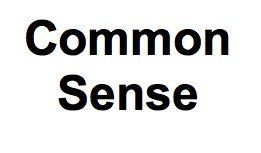Candidates and Immigration — A Guide to the Maryland Primary

Few solutions have been proposed to the immigration issues the U.S. faces.
The 287(g) Program is the most important immigration issue in Congress at present. According to the American Civil Liberties Union (ACLU): “Across the country right now, local and state police officers are being empowered to harass immigrant communities through a U.S. Immigration and Customs Enforcement (ICE) program — known as 287(g). Under 287(g) agreements, local law enforcement agencies — primarily sheriffs — are enabled with authority that would normally be reserved for federal ICE agents. It gives them the ability to investigate a person's immigration status and hold people for transfer to ICE detention — and means that even the most minor of interactions with local law enforcement could lead to deportation and being split apart from family members.”
There are 142 state and local law enforcement agencies that participate in the 287(g) program, and racial profiling, poor jail conditions, and other civil rights violations are widespread among them. Maryland has three law enforcement agencies that are cooperating with the 287(g) program according to an ACLU survey.
Another “solution,” Title 42, a policy initiated under Trump, “unlawfully strips people of the right to seek asylum by expelling them without any due process, under the guise of public health,” says the ACLU. The CDC terminated the Title 42 program earlier this year because the policy is no longer necessary to protect public health. But anti-immigrant lawmakers are fighting to preserve this expulsion program.
Governor/Lieutenant Governor
Few candidates have made clear statements about their positions on immigration policy. Of the four Republican gubernatorial candidates, only Dan Cox has a stated position on immigration; none of the Democratic candidates for governor have information on this topic posted on their websites.
Dan Cox + Gordana Schifanelli — Republican
Cox supports ICE’s 287(g) program. He states that he “will support and empower our local Sheriffs, State Police and Federal partners to remove criminal illegal aliens from our communities.” Cox has also stated that he will “ensure the immediate ending of the catch and release of illegal foreign nationals into our streets and double the pay of police officers while providing state of the art world-class training with protection from frivolous lawsuits and public information act requests of private and family information.”
Congress 1st District
Andrew P. Harris — Republican — incumbent
Harris responded to a question about Title 42 on Fox News on May 25 relating it to a covid issue and saying that he is an opponent of “illegal immigration.” He has also made the following statements:
- “We should fully support enforcing existing immigration laws, securing our borders, and denying criminal, illegal immigrants safety in sanctuary states.”
- “I also support Homeland Security procedures for refugees fleeing Syria and other war-torn countries, that properly screen for terrorists.”
Harris does not support human rights for safety in states that offer sanctuary for immigrants requesting asylum.
Harris also voted nay on the American Dream and Promise Act of 2021, which passed the House with a vote of 228 in favor and 197 against.
R. David Harden — Democrat
Harden supports immigration reform. He stated, “The United States needs comprehensive immigration reform beginning with adequate and effective border controls, a pathway to citizenship for the small class of Dreamers, increased admittance of refugees particularly given the mass displacement in Ukraine, and a merit-based immigration system.”
Heather R. Mizeur — Democrat
Mizeur stated, “I support comprehensive immigration reform that includes both a clear pathway to citizenship for undocumented immigrants and a commitment to border security.”
Most candidates have been silent on this issue, but Cox and Harris are against any humanly considerate bills for immigrants while Harden and Mizeur recognize the rights of immigrants to respectful treatment and facilitation of their efforts to achieve U.S. citizenship, especially after living most of their lives in the United States.
Jeanette E. Sherbondy is a retired anthropology professor from Washington College and has lived here since 1986. In retirement she has been active with the Kent County Historical Society and Sumner Hall, one of the organizers of Legacy Day, and helped get highway /historical markers recognizing Henry Highland Garnet. She published an article on her ethnohistorical research of the free Black village, Morgnec.
Common Sense for the Eastern Shore







